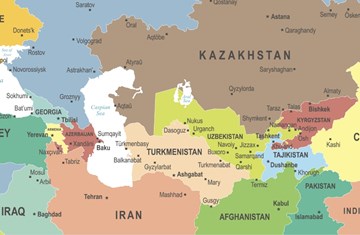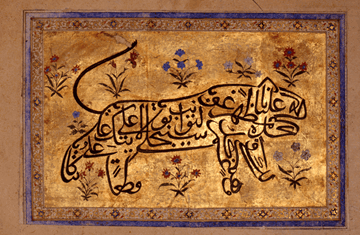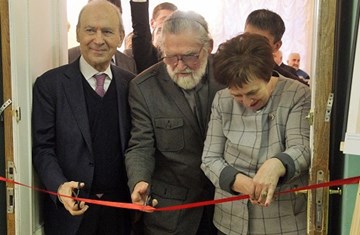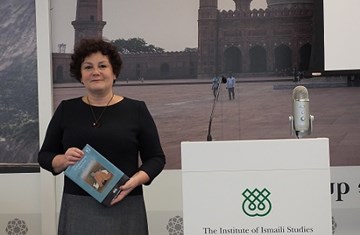Reza Shah-Kazemi Speaks About the Qur’an as a Source of Dialogue Amongst Faith Communities
Speaking about the Qur’an’s vision of an inclusive and embracing pluralism, Reza Shah-Kazemi, Research Associate at The Institute of Ismaili Studies, has been delivering a series of keynote lectures at important research centres in Lahore, Kuala Lampur and Amman. The tour is sponsored by Jordan’s Aal al-Bayt Foundation.
Dr Shah-Kazemi delivered lectures on ‘The Qur’anic Concept of Universality’ at the Iqbal Academy, Lahore, the Institute of Policy Research, Kuala Lampur, and in Amman at the Aal al-Bayt Foundation. In his paper, he employed esoteric interpretations of the Qur’an to demonstrate Islam’s position as an inclusive religion that reaffirmed the revelations that form the basis of other monotheistic faiths. Furthermore, the Qur’an encourages a pluralism that embraces difference, including divergence in religious worldviews.
Citing the Qur’anic verse, ‘Say: We believe in God and that which is revealed unto us, and that which was revealed unto Abraham and Ishmael and Isaac and Jacob and the tribes and that which was given unto Moses and Jesus and the prophets from their Lord. We make no distinction between any of them, and unto Him we have submitted,’ Dr Shah-Kazemi argued that the Qur’an’s vision was one that accepted other monotheistic worldviews and encouraged dialogues amongst these religious traditions.
The lecture expands upon the themes of the paper, ‘The Metaphysics of Interfaith Dialogue: A Qur’anic Perspective’, available on the IIS website.
In addition to the lecture tour, Dr Shah-Kazemi also participated in the Symposium, ‘Islamic Fundamentalism and the Betrayal of Tradition’ hosted by the American University of Cairo’s Department of Political Science, the Abdulhadi H. Taher Chair of Comparative Religion, and the University’s Adham Center for Television Journalism.
Dr Shah-Kazemi’s paper, ‘Recollecting the Spirit of Jihad’ argued for reclaiming the ‘traditional spirit of Islam, and of the meaning, role and significance of jihad within it.’ Speaking about how individuals interpreted the events of September 11, 2001, he remarked, ‘There is an unhealthy and dangerous convergence of perception between, on the one hand, those—albeit a tiny minority—in the Muslim world who see the attacks as part of a necessary anti-western jihad; and on the other, those in the West—unfortunately, not such a tiny minority—who likewise see the attacks as the logical expression of an inherently militant religious tradition, one that is irrevocably opposed to the “West”. The paper demonstrated the extent to which the terrorist acts and attitudes of today’s self-styled warriors of Islam deviate from the tradition of principled warfare in Islam, this tradition being vividly exemplified by such figures as Imam ‘Ali, Saladin and the Emir ‘Abd al-Qadir al-Jaza’iri.
Proceedings of the Symposium 'Islaimc Fundamentalism and the Betrayal of Tradition' and additional essays are being published by World Wisdom Books later this year.










